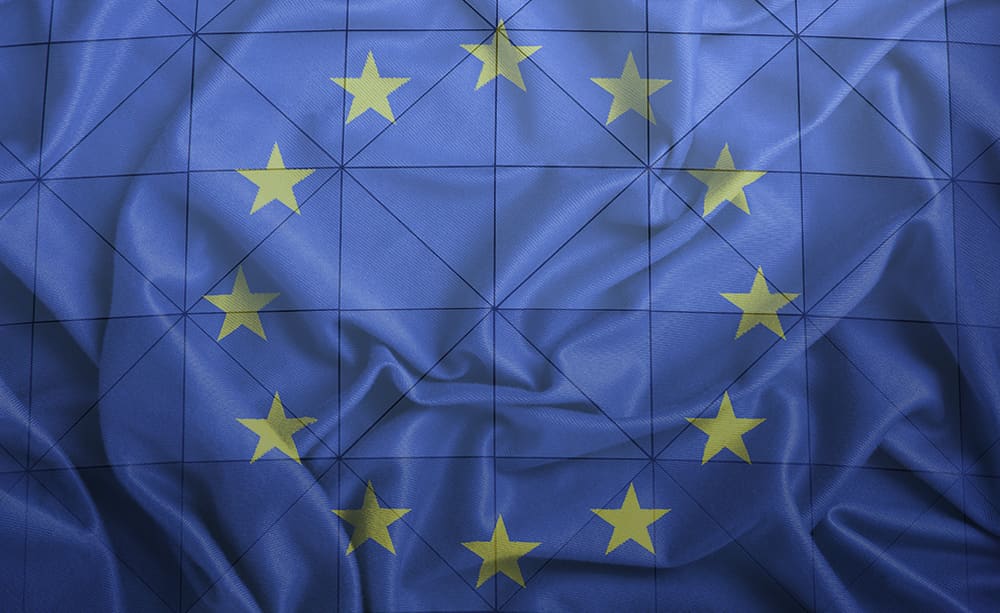Resuming the summary of the European Commission’s digital strategy for the future of Europe, we turn to its other communication on data privacy and personal information safety. The communication titled “A European strategy for data” accompanies “The White Paper on Artificial Intelligence: A European Approach to Excellence and Trust”, the summary of which was provided in our last post.
Below is the outline of key ideas conveyed in the report, condensed to a digestible format for quicker reading.
- 1. Introduction
- 2. What is at stake?
- 3. The vision
- 4. The problems
- 5. The strategy
- A. Cross-sectoral governance framework for data access and use
- B. Enablers: Investments in data and strengthening Europe’s capabilities and infrastructures for hosting, processing and using data, interoperability
- C. Competences: Empowering individuals, investing in skills and in SMEs
- D. Common European data spaces in strategic sectors and domains of public interest
- 6. An open, but proactive international approach
- 7. CONCLUSION
1. Introduction
Data-driven innovation has already transformed and will bring further benefits in medicine and mobility. With the growing volume of generated data, the EU must implement people-first policies to protect personal information in a data economy. At the same time it will explore growth opportunities using public and non-personal data.
Both in the private and in the public sector, the EU can become a role model for other societies empowered by data. To accomplish this Europe will draw upon the many uses of data throughout the Single market. The communication proposes a strategy for policy and investment in the next 5 years
2. What is at stake?
Growing data volumes and technological change
Data volumes will grow and data storage will change from centralized facilities to edge devices in the next 5 years. This opens opportunities for businesses to develop data control practices and tools.
The importance of data for the economy and society
Data-enabled decisions in a data-driven economy are essential for the development of new services and products, as well as government policies. The use of digital twins, replicas of physical products, processes or systems, will transform manufacturing in that it will allow to adopt a predictive approach to maintenance and decision-making. Data will also help tackle goals for becoming a sustainable society and address climate change.
The EU has everything to play for in the data economy of the future
In the data-agile economy the EU’s strengths are in industrial and professional applications, as well as the internet of things. The EU is encouraged to act now to grow data-driven presense and dilute the concentration of data, currently concentrated in the hands of a few Big Tech firms. Data-heavy regions such as the US currently impart data control on the private sector, while China does little to enforce individual protection, while being vigilant over technology companies.
What has been done so far?
Steps such as the creation of the General Data Protection Regulation (GDPR), Regulation on the free flow of non-personal data (FED), the Cybersecurity Act (CSA) and the Open Data Directive, the Digital Content Directive have all been contributing to building a framework for a data-driven economy.
3. The vision
For social and economic good, better access to data, as well its responsible use and reproduction needs to be ensured. This sets the background for the creation of a single European data space, backed by relevant tools, competencies, infrastructures, mechanisms and standards. Rules and mechanisms should ensure:
- Data flow within EU
- European rules and values
- Fair and clear rules for data access
The European single space will depend on technological investments, infrastructures, data pools, and data exchange between contributing organizations. Sectoral and cross-sectoral data spaces need to accompany each other to ensure growth in strategic areas (manufacturing, agriculture, health and mobility).
4. The problems
Fragmentation between Member States in the form of state-specific legislation of private data is one of the main problems that can be overcome through:
Availability of data
Currently not enough data for innovative re-use.
- Use of public sector informatio by business (government-to-business – G2B – data sharing)
Ensuring that government-owned data, produced using public funds is disclosed, including purposes for the betterment of society or the benefit of the scientific community. - Sharing and use of privately-held data by other companies (business-to-business – B2B – data-sharing)
Economic incentives have not motivated data sharing between companies. - Use of privately-held data ba government authorities (business-to-government – B2G- data sharing)
Insufficient private sector data for use by the public sector to drive evidence-based policy-making. The Commission-created Expert Group recommends the creation of B2G data-sharing structures to assist regulation of public sector data re-use. - Sharing of data between public authorities
Aimed at improving policy making and public services, and reduction of administrative burden on companies in the Single Market.
Imbalances in market power
Data access and use by SMEs is unbalanced. High market power concentration in the hands of few players can lead to lack of competition and imposed rules on new service development.
Data interoperability and quality
There is a lack of data interoperability between data producers and users due to a multitude of data format from several sources, across different markets and verticals. ICT standartization is encouraged to resolve the issue.
Data governance
The public and private sector require organizational approaches and structures to operate data centers under the current legislation.
Data infrastructures and technologies
Cloud and edge capacities will enable digital transformation in the EU, however, for dependencies need to shift.
In terms of supply: the EU heavily relies on external supply, having a low share of the cloud market; third party (country) data access is still a risk due to reliance by operators in the EU on external supply; third country legislations and compliance issues in relation to EU personal data protection legislation; contract non-conformity and unfair terms for SMEs and small enterprise.
In terms of demand: low cloud uptake in the private and especially the public sector; insufficient visibility of EU-native market players; multi-cloud data interoperability issues.
Empowering individuals to exercise their rights
Protection granted by the GDPR and ePrivacy legislation lacks tools for individuals to exercise their rights. Consumer and innovation empowerment make up part of the clauses on data access and reuse in the Payment Services Directive. Individuals and consumers are calling towards being granted the tools to enable them to make decisions as to the handling of their data.
Skills and data literacy
Big data and analytics are unfilled positions and overall data literacy in the workforce remains low
Cybersecurity
The EU already boasts a framework supported by Member States. To further the cause, the EU Cybersecurity Certification Framework and the EU Agency for Cybersecurity (ENISA) will play their roles. New paradigms for data access and storage on edge technologies will need to be developed still.
5. The strategy
New legal clauses will be assessed against the Better Regulation principles based on the following four pillars.
A. Cross sectoral governance framework for data access and use
Horizontal measures for data access and use will prevent the fragmentation of the Single market. An agile approach to legislation, with iteration and differentiation, will will be at the heart of an enabling legislative framework for the governance of common European data spaces, to be released at the end of 2020.
The framework will build on Member State and individual sector initiatives to:
Strengthen the data governance mechanism through standartization and FAIR (Findability, Accessibility, Interoperability and Reusability) principles.
Facilitate data use for research in compliance with existing legislation
Allow for data altruism in compliance with existing legislation
The EC will also work on making data reuse more openly available for SMEs through standardized instruments (databases and APIs).
It will also motivate horizontal data-sharing across in order to:
– Consolidate B2G data sharing
– Support B2B data sharing
– Define circumstances when access to sensitive data is reasonable
– Evaluate the Intellectual Property Rights framework for revisions
Stakeholders will also be updated on compliance of data-sharing and pooling-arrangements with EU competition law.
The EC will also review its guidelines on State Aid and cloud provider-switching self regulation. Jurisdictional data-related issues will also be addressed to avoid conflicts via claims from outside EU borders.
Data-enabled services and the use of data in products will be facilitated by review of regulatory and non-regulatory obstacles. Demand will be fostered for data-analytics ad automated services in public services and decision making.
Market transparency and fairness will be validated through fact-finding of imbalances caused by Big Tech companies.
Leading by example
Through excellence in data organization and data-driven policy making the EU will disclose access and reuse of the data produced through its own data research initiatives. It will make use of data and analytics in internal processes and propose a Data act by 2021.
B. Enablers: Investments in data and strengthening Europe’s capabilities and infrastructures for hosting, processing and using data, interoperability
The data strategy at hand relies on private companies of all sizes to develop new business models to create products that rely on data for product development. Standard setting, tool development and best practice collection will be used for next generation infrastructures for data-processing.
A 6 year project on European data spaces and federated cloud infrastructures will procure funding for data-sharing and AI ecosystems. The project will develop and benefit the data-intensive companies ecosystem, to support the public and private sector in digital transformation.
As part of its overall strategy and in particular as part of its industrial strategy the EU will attract funding from Member States and invest in new technologies.
High Impact Project: developing common European data spaces and interconnecting cloud infrastructures
The EC plans to fund EU-wide common, interoperable data spaces in strategic sectors to overcome legal and technical barriers to data-sharing across organizations. Such data centers will offer data processing and computing capacities in compliance with all essential requirements (security, sustainability, interoperability, scalability).
SMEs will also benefit from platforms that will enable them to take advantage of technological opportunities across the value chain.
The Commission will facilitate Memoranda fo Understanding with Member States by Q3 2020 to synergize and synchronize, thus avoiding fragmentation, with Member States that already have cloud federation and data-sharing initiatives.
Enabling access to competitive, secure and fair European cloud services
The EC, in cooperation with Member States, will observe adherence to the law and, where necessary, will implement new mechanisms for cloud service providers on the EU market. By the second half of 2022 it will formulate a ‘cloud rulebook’, a compendium of existing cloud code of conduct and certifications on security, energy efficiency, service quality and data handling. It will also define standards and requirements for public procurement of data processing services.
To connect private and public demand, the EC will establish a cloud services marketplace by Q4 2022.
C. Competences: Empowering individuals, investing in skills and in SMEs
Empowering individuals with respect to their data
The EC upholds support for individuals to have a bigger say in how their data is handled. It proposes the creation of personal data spaces, interfaces that will allow individuals to better access and manage data they or the machines they use produce.
Investments in skills and general data literacy
By 2025 the EU Member States will plan to have reduced the skill gap to deploy data-enabled technologies in business. Updating the Digital Education Action Plan, implementing mentorship programs, as well as increasong the participation of women — all these are goals aimed at increasing the population’s basic digital skills from 57% to 65% in the defined time range.
Dedicated capacity building for SMEs
Horizon Europe, Digital Europe, and other investment fund programmes to build capacities for starting and scaling businesses via the use of data.
D. Common European data spaces in strategic sectors and domains of public interest
In addition to the above mentioned measures, the EC will establish European data spaces in strategic sectors and domains to avail large pools of data for ecosystems and citizens.
The horizontal framework will lead to applicable updates to legislation to the relevant sectors.
The EC will utilize the research of the European Open Science Cloud community to establish 9 data spaces dedicated to: the Green Deal, the mobility space, industry (manufacturing), health, finance, energy, agriculture, public administration, skills.
6. An open, but proactive international approach
The approach will be open, but also assertive, factoring in the connected character of cooperation of modern companies. The EC will outline and shape international standards to foster and ecosystem of innovation compliant with the law.
Data protection, security, fair and trustworthy market practices will be key principles that will be addressed in bilateral talks, especially in relation to European individuals and companies. Trusted and sharing of data is promoted, with an emphasis on secure and compliant data exchange and transfers.
The EC will continue improving its capacity to analyze strategic interests to facilitate international data flows. It will make investments into data flow measurement frameworks and establish techniques, mechanisms and tools for these purposes.
Using the legal framework and technical infrastructure the EU will also nurture trust for data storage and processing from other countries. This entails counteracting abuse from rogue agents as well as government players themselves when it comes to personal data protection.
7. Conclusion
The measures proposed for the data strategy in this communication seeks to be an enabler for the EU to become a data-agile economy. To achieve this status Erope has yet to harness the full potential of technology and data. In order to take advantage of this ‘window of opportunity’ the EU shall act on the guideline framework without delay.
The framework shall be open for consultation for the next 3 months.
Not included in this summary is the Annex, which explores the 9 sector-specific data spaces, listed in clause 5, section D., with actions and outlines for the appropriate use of policy in each.
28 February 2020

 Pavel Kaplunou
,
Pavel Kaplunou
, 



